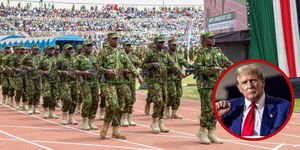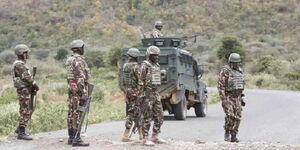The Director of Public Prosecutions (DPP), Noordin Haji, has supported the ongoing registration of sim cards claiming that criminal organisations use unregistered ones to commit crimes.
Speaking on KTN News on Wednesday, April 13, Haji drew examples from the Dusit D2 terror attack that happened in January 2019.
Haji explained that the militia group exploited the weak link in the country's telecommunication landscape to plan and carry out the attack that left 22 people dead and dozens injured.
He noted that one of the terror suspects was found in possession of over over 30 unregistered sim cards which were being used to make different transactions to facilitate the terror operation.
"Registration of these cards is also very important. In Kenya, we have mobile financial applications and some of them are actually exploited by terrorists to come and harm Kenyans," he explained.
Explaining the correlation between unregistered sim cards and the criminal activities in the country, Haji noted that gangs acquire numerous sim cards, then bypass the registration exercise and collude with some telcos to make money transactions.
"If we were to look at the Dusit D2 attack, the terrorists relied on money transfer services and some of the loopholes that were there."
After the attack, Haji noted that telcos in the country inked a deal with the Communication Authority to seal the loopholes that were being exploited by criminals.
Among the measures introduced is the enforcement of the sim card registration exercise which is currently ongoing countrywide.
According to CA Director General, Ezra Chiloba, April 15 is the deadline for the registration process with the unregistered sim cards facing disconnection.
Speaking during an engagement forum with the media on Sunday, April 10, Chiloba reiterated the need for subscribers to visit agents to validate their registration.
"All operators shall provide a self-verification USSD code and online platform with standardised menus and messages.
"The USSD Code that is *106# for verification. This means that subscribers do not have to present themselves physically and the operator's service centers physically unless it is necessary," stated Chiloba.
He clarified that it was not mandatory for individuals to present photos as long as they have provided personal details to their relevant telecommunication providers.

Govt Imposes Curfew in Sections of Narok County Breaking News











